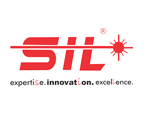B.Sc. Physics (Hons)
Programme Overview
The B.Sc. in Physics programme at MIT-WPU offers a thorough exploration of physics fundamentals and advanced concepts. By integrating theoretical knowledge with practical applications, the curriculum prepares students to tackle complex challenges and contribute meaningfully to scientific progress. The programme features state-of-the-art laboratories, experienced faculty, and an interdisciplinary approach that fosters comprehensive and hands-on learning experiences, making it an ideal educational pathway for those seeking a complete physics education.
The various specialisations in physics can be made available for B.Sc. degree students pursuing undergraduate programmes
Computational Physics : This area of study equips students in complex computational and modeling procedures to help explore complex physical phenomena. Graduates are equipped with the capability to address complex challenging issues pertaining to condensed matter, quantum, or fluid dynamics.
Astrophysics : The programme enables the study of celestial objects and phenomena; students learn thoroughly about the universe, stellar evolution, and cosmology. Graduates are better placed for astronomical research careers, space exploration studies, and data analysis.
Laser Technology : This programme is the core principles and applications of laser systems so that one will be able to master the field of laser physics, optical engineering, and laser material interaction. The graduate can enter fields like photonics, telecommunication, and manufacture.
Duration & Fees
Duration
4 Years
Last Date to Apply : 06 April 2026
Fee Per Year
₹ 85,000
Scholarship
| Scholarship for AY 2026-27 | 10th Aggregate Score | 12th Aggregate Score |
|---|---|---|
|
Dr. Vishwanath Karad Scholarship |
90 & Above |
85 & Above |
|
MIT-WPU Scholarship I |
88 & Above |
83 & Above |
|
MIT-WPU Scholarship II |
85 & Above |
80 & Above |
Note: Scholarships will be awarded based on the Class 10/SSC and Class 12/HSC score.
Terms & Conditions Apply:
- All Scholarships are awarded on a First Come First Serve basis. All Scholarships are awarded as fee adjustments.
- To continue the scholarship for the entire duration of the programme, a minimum level of the academic score has to be maintained at an 8 CGPA across all semesters, attendance is to be maintained at a minimum of 80 percent, with no live backlogs in any subject/programme and no semester break, and there should be no disciplinary action against the student.
For more detailed information visit our website: https://mitwpu.edu.in/scholarships
Eligibility
Minimum 50% aggregate marks in Class 10+2/ HSC or its equivalent examination in science stream with Physics as a regular subject (Minimum 45% aggregate marks for candidates belonging to the Reserved Category from Maharashtra State).
OR
Minimum 55% aggregate marks in any 3 years Engineering Diploma from State Government approved Institution/ board
Selection Process
Admission will be based on the Personal Interaction (PI) score, conducted by the University according to the prescribed schedule
Programme Highlights
- Unique integration of Physics and Computer Science, opening diverse career paths and enhancing placement opportunities
- Interdisciplinary curriculum that perfectly balances academic theory, industry applications, and research methodologies
- Cutting-edge specialised curriculum including Astrophysics, Quantum Computing, AI/ML, Data Analytics, Laser Applications, Electronics, and Blockchain Technology
- Curriculum aligned with current national and international trends in Physics and Computer Science
- Strategic balance between theoretical knowledge, laboratory experience, and hands-on project work
- Regular engagement with industry professionals and distinguished researchers providing practical insights
- Guidance from a diverse advisory council representing various sectors of physics and technology
- Access to state-of-the-art laboratories and modern learning facilities for exploring physics frontiers
- Mentorship from highly qualified faculty with extensive academic and research experience
Programme Structure
| Semester | Course Type | Course Name/Course Title | Total Credits |
|
I |
University Core |
Effective Communication |
1 |
|
I |
University Core |
Critical Thinking |
1 |
|
I |
University Core |
Environment and Sustainability |
1 |
|
I |
University Core |
Foundations of Peace |
2 |
|
I |
University Core |
Yoga - I |
1 |
|
I |
University Core |
SLDP |
1 |
|
I |
Programme Foundation |
Mechanics and Properties of Matter |
2 |
|
I |
Programme Foundation |
Chemistry |
3 |
|
I |
Programme Foundation |
Mathematics |
3 |
|
I |
Programme Foundation |
Physics of Materials |
3 |
|
I |
Programme Foundation |
Fundamentals of Programming 1 |
2 |
|
I |
Programme Foundation |
Physics Lab 1 |
1 |
|
I |
Programme Foundation |
Programming Lab 1 |
1 |
| Semester | Course Type | Course Name/Course Title | Total Credits |
|
II |
University Core |
Advanced Excel |
1 |
|
II |
University Core |
Financial Literacy |
1 |
|
II |
University Core |
Yoga - II |
1 |
|
II |
University Core |
Co-creation |
1 |
|
II |
University Core |
Indian Constitution |
1 |
|
II |
University Core |
IKS(General) |
2 |
|
II |
University Core |
Sports |
1 |
|
II |
Programme Foundation |
Heat & Thermodynamics |
2 |
|
II |
Programme Foundation |
Electricity and Magnetism |
2 |
|
II |
Programme Major |
Mathematical Methods in Physics 1 |
3 |
|
II |
Programme Foundation |
Fundamentals of Programming 2 |
2 |
|
II |
Programme Foundation |
Electronics |
2 |
|
II |
Programme Foundation |
Physics Lab 2 |
1 |
|
II |
Programme Foundation |
Programming Lab 2 |
1 |
| Semester | Course Type | Course Name/Course Title | Total Credits |
|
III |
University Core |
Research Innovation Design Entrepreneurship (RIDE) |
1 |
|
III |
University Core |
Spiritual & Cultural Heritage; Indian Experience |
2 |
|
III |
University Electives |
UE - I |
3 |
|
III |
University Electives |
UE-II |
3 |
|
III |
Programme Capstone Project/Problem Based Learning/Seminar and Internships |
Project Based Learning - I |
1 |
|
III |
Programme Major |
Classical Mechanics with Fluid Mechanics |
3 |
|
III |
Programme Major |
Mathematical Methods in Physics 2 |
3 |
|
III |
Programme Major |
Atomic and Molecular Physics |
3 |
|
III |
Programme Foundation |
Physics Lab 3 |
1 |
|
III |
Programme Foundation |
Biology for Physicists |
2 |
| Semester | Course Type | Course Name/Course Title | Total Credits |
|
IV |
University Electives |
UE-III |
3 |
|
IV |
University Core |
Rural Immersion |
1 |
|
IV |
Programme Capstone Project/Problem Based Learning/Seminar and Internships |
Project Based Learning - II |
1 |
|
IV |
University Core |
Life Transformation Skills |
1 |
|
IV |
Programme Major |
Computational Physics 1 |
2 |
|
IV |
Programme Major |
Quantum Mechanics |
3 |
|
IV |
Programme Major |
Electrodynamics |
3 |
|
IV |
Programme Major |
Digital Electronics |
3 |
|
IV |
Programme Foundation |
Statistics |
2 |
|
IV |
Programme Foundation |
Physics Lab 4 |
1 |
|
IV |
Programme Foundation |
Computational physics lab 1 |
1 |
| Semester | Course Type | Course Name/Course Title | Total Credits |
|
V |
University Core |
Managing Conflicts Peacefully: Tools and Techniques |
2 |
|
V |
Programme Capstone Project/Problem Based Learning/Seminar and Internships |
Project Based Learning - III |
1 |
|
V |
Programme Electives |
Programme Elective |
4 |
|
V |
Programme Major |
Computational Physics 2 |
3 |
|
V |
Programme Major |
Introduction to GPU & Parallel programming |
3 |
|
V |
Programme Major |
Computational physics lab 2 |
2 |
|
V |
Programme Major |
Nuclear and Particle Physics |
3 |
|
V |
Programme Major |
Mathematical Methods in Physics 3 |
3 |
|
V |
Programme Major |
GPU & Parallel Programming lab |
1 |
| Semester | Course Type | Course Name/Course Title | Total Credits |
|
VI |
Programme Capstone Project/Problem Based Learning/Seminar and Internships |
Project Based Learning - IV |
1 |
|
VI |
University Core |
National Academic Immersion |
2 |
|
VI |
Programme Electives |
Programme Elective |
4 |
|
VI |
Programme Foundation |
IKS - Ancient Indian Astronomy |
2 |
|
VI |
Programme Major |
Quantum Computing |
3 |
|
VI |
Programme Major |
Introduction to Artificial Intelligence and Machine Learning |
3 |
|
VI |
Programme Major |
Statistical Mechanics |
3 |
|
VI |
Programme Major |
Quantum Computing lab |
1 |
|
VI |
Programme Capstone Project/Problem Based Learning/Seminar and Internships |
AI and ML lab |
2 |
| Semester | Course Type | Course Name/Course Title | Total Credits |
|
VII |
Programme Electives |
Programme Elective |
4 |
|
VII |
Programme Capstone Project/Problem Based Learning/Seminar and Internships |
Computational Physics 4 |
2 |
|
VII |
Programme Capstone Project/Problem Based Learning/Seminar and Internships |
Project 2 |
10 |
|
VII |
Programme Capstone Project/Problem Based Learning/Seminar and Internships |
Research Methods in Physics |
2 |
| Semester | Course Type | Course Name/Course Title | Total Credits |
|
VIII |
Programme Electives |
Programme Elective |
4 |
|
VIII |
Programme Capstone Project/Problem Based Learning/Seminar and Internships |
Internship |
12 |
| Semester | Program Electives | Course Name/Course Title | Total Credits |
|
V |
Programme Elective - I |
Internet of Things |
4 |
|
V |
Programme Elective - I |
Basics of Astronomy and Astrophysics |
4 |
|
V |
Programme Elective - I |
Laser Physics |
4 |
|
VI |
Programme Elective - II |
Computer Graphics |
4 |
|
VI |
Programme Elective - II |
Observational Astrophysics |
4 |
|
VI |
Programme Elective - II |
Photonics |
4 |
|
VII |
Programme Elective - III |
Blockchain technology |
4 |
|
VII |
Programme Elective - III |
Radiative Processes, Fluids and Plasmas |
4 |
|
VII |
Programme Elective - III |
Laser Manufacturing |
4 |
|
VIII |
Programme Elective - IV |
Data Analytics |
4 |
|
VIII |
Programme Elective - IV |
Solar and Stellar Physics |
4 |
|
VIII |
Programme Elective - IV |
Laser Applications |
4 |
Career Prospects
AI data analysts
Astronomers
Astrophysicists
Cosmologists
Experimental physicists
Junior associate scientists
Machine learning engineers
Quantum computing researchers
Theoretical physicists
Programme Outcomes
- Scientific Knowledge: Apply the knowledge of Physics fundamentals and specialisations to the solution of complex scientific problems.
- Problem analysis and critical thinking: Identify, formulate, review research literature, and analyse complex scientific problems, reaching substantiated conclusions using the first principles of Physics.
- Design/Development of Solutions: Design solutions for complex scientific problems that meet the specified needs with appropriate consideration for public health and safety and cultural, societal, and environmental considerations.
- Conduct Investigation of Complex Problem: Use research-based knowledge and research methods including design of experiments, analysis and interpretation of data, and synthesis of the information to provide valid conclusions for complex problems.
- Technical Skills, Research, and Innovation Aptitude: Create, select, and apply appropriate techniques, resources, and modern physics, quantum science and computational tools, including prediction and modeling, to complex scientific activities with an understanding of the limitations.
- The Physicist and Society: Apply reasoning informed by the contextual knowledge to assess societal, health, safety, legal and cultural issues and the consequent responsibilities relevant to the scientific practice.
- Ethics: Apply ethical principles and commit to professional ethics and responsibilities and norms of the scientific practice. Project Management and
- Finance: Demonstrate knowledge and understanding of the physics principles and apply these to one’s own work as a member and leader in a research group to manage research projects in multidisciplinary environments.
Placements & Recruiters
100% Placement Assistance
Top Recruiters
Student Testimonials
Hear from our current students and alumni who have gained industry experience through internships and placements at leading companies.
FAQs
Graduates can pursue careers in research institutions, educational sectors, private companies in technology and engineering fields, or continue their studies with a master's degree or Ph.D.
The curriculum includes core physics subjects along with mathematics and computational aspects. Specific subjects mentioned include Mechanics, Properties of Matter, Electricity and Magnetism, Mathematical Methods in Physics, Classical Mechanics, Atomic and Molecular Physics, Quantum Mechanics, Electrodynamics, Computational Physics, Nuclear and Particle Physics, and more.
Yes, MIT-WPU offers merit-based scholarships to deserving students based on their academic performance in national/state level entrance exams and the MIT-WPU CET. These scholarships are offered as fee adjustments and are subject to certain criteria.
MIT-WPU has a dedicated Centre for Industry-Academia Partnerships (CIAP) that aims to connect students with potential employers and provide career guidance.
Yes, the programme incorporates multidisciplinary learning, project-based modules, national and rural immersion programmes, seminars, MOOCs, and guest lectures by national and international experts.













 admissions@mitwpu.edu.in
admissions@mitwpu.edu.in
